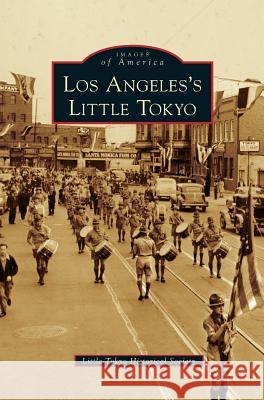Los Angeles's Little Tokyo » książka
Los Angeles's Little Tokyo
ISBN-13: 9781531653934 / Angielski / Twarda / 2010 / 130 str.
In 1884, a Japanese sailor named Hamanosuke Shigeta made his way to the eastern section of downtown Los Angeles and opened Little Tokyo's first business, an American-style cafe. By the early 20th century, this neighborhood on the banks of the Los Angeles River had developed into a vibrant community serving the burgeoning Japanese American population of Southern California. When Japanese Americans were forcibly removed to internment camps in 1942 following the attack on Pearl Harbor and the United States' entrance into World War II, Little Tokyo was rechristened "Bronzeville" as a newly established African American enclave popular for its jazz clubs and churches. Despite the War Relocation Authority's opposition to re-establishing Little Tokyo following the war, Japanese Americans gradually restored the strong ties evident today in 21st-century Little Tokyo--a multicultural, multigenerational community that is the largest Nihonmachi (Japantown) in the United States."
In 1884, a Japanese sailor named Hamanosuke Shigeta made his way to the eastern section of downtown Los Angeles and opened Little Tokyos first business, an American-style cafe. By the early 20th century, this neighborhood on the banks of the Los Angeles River had developed into a vibrant community serving the burgeoning Japanese American population of Southern California. When Japanese Americans were forcibly removed to internment camps in 1942 following the attack on Pearl Harbor and the United States entrance into World War II, Little Tokyo was rechristened "Bronzeville" as a newly established African American enclave popular for its jazz clubs and churches. Despite the War Relocation Authoritys opposition to re-establishing Little Tokyo following the war, Japanese Americans gradually restored the strong ties evident today in 21st-century Little Tokyo--a multicultural, multigenerational community that is the largest Nihonmachi (Japantown) in the United States."











